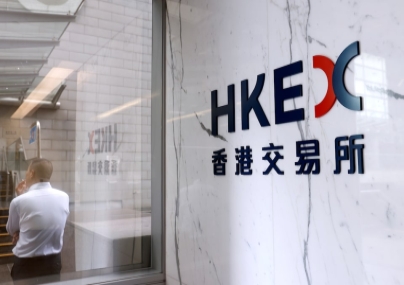
中国短视频用户数量已达10.12亿人,日均观看短视频时间近90分钟。伴随内容消费全面迈入“短视频时代”,律师事务所也在重新思考自己的市场传播途径。
律师事务所的市场运营与传播,需要不断在合适的平台上触达合适的人群。从传统的书刊、电视广播,到网站、微信公众号,律所的传播渠道随着内容消费平台的演变而不断拓宽。如今,短视频作为一种新兴媒介,成为了律所传播策略中不可忽视的组成部分。
张振祖律师是海润天睿律师事务所高级合伙人,分管律所的品牌及专业化建设。2022年5月,海润天睿开设微信视频号,并着力打造了一系列短视频内容。张律师坦言:“微信长文章的受众日益减少,短视频成为了日常获取信息的关键渠道。”海润天睿正是被这种时代趋势倒逼展开了短视频制作,“否则就少了一种和客户沟通的重要手段”。
微信长文章的受众日益减少,短视频成为了日常获取信息的关键渠道。
- 张振祖,海润天睿律师事务所
李小非律师是广东五美律师事务所主任,五美在2020年6月开设了微信视频号,并在过去两年加速了原创短视频内容的发布。李律师表示,“在社交媒体时代,客户检验一家律所可信度、权威性的方式发生了变化。原来是到百度上去搜索官网、评论,现在变成去抖音、视频号上‘搜一搜’。我们希望无论客户由哪个渠道进入,都能找到五美的‘官方平台’,看到我们输出的高质量专业内容”。
华商律师事务所在2021年底开设了微信视频号,并从2022年起启动了规律性的内容周更。华商坦言,短视频已经成为了其“提升品牌影响力与深化市场渗透力的关键一环”。
在华商看来,短视频与律所的品牌传递密切相关。“短视频直观、生动、易于传播,能够迅速将律所的专业形象、服务理念、成功案例等关键信息传递给目标受众。而在如今竞争激烈的法律服务市场,一个强有力的品牌是吸引潜在客户、赢得市场信任的关键。”
定位决定策略
虽然某种程度上在时代裹挟下进入了短视频世界,但通过一段时间摸索,律所逐渐搭建起了自己的短视频传播策略,并且如张振祖律师所说,“该策略一定要和律所定位、主营业务方向、客户类型、品牌定位等相配搭”。
以海润天睿为例,作为一家在商事领域提供法律服务的律所,它服务的基本是B端客户,“B端客户往往基于和某位律师、团队以及单一业务领域的合作而和海润天睿建立联系,但他们的法律服务需求往往是综合性的,需要让客户延展了解海润天睿在其他领域的服务能力”。
因此,海润天睿的品牌策略在于通过传播专业内容,让客户进一步了解律所的专业能力,而非直接获客,“所以短视频的流量高低对我们的意义不是很大,B端客户也很难基于某个视频去委托一家律所”。
李小非律师对此也很认同。作为一家专业化精品婚姻家事律所,李律师认为五美的品牌传播目标人群“不仅包括社会大众,更要面向法律行业的专业人士”。因此,五美的短视频不以吸引陌生流量为目标,把更多精力放在了内容的优质度上。
基于此,五美的短视频内容主要分为两类:一类关注于专业内容输出,并贴合律所近期重点关注的细分领域。例如近年家事市场有“婚姻业务长盛不衰,继承业务厚积薄发”的说法,指的是伴随社会转型,继承业务逐渐增多,为配合这样的业务类型变化,五美的短视频也探讨了一系列继承法律问题,传播律所在这一较新维度的专业实力。
五美的品牌传播目标人群不仅包括社会大众,更要面向法律行业的专业人士。
- 李小非,五美律师事务所
另一类短视频则围绕社会热点话题和事件展开,例如妇女节、国际消除对妇女暴力日、老年人相关节日、特定法律草案的修订、相关新法出台等,“都会结合专业领域去做回应”。
在内容层面,张振祖律师告诉ALB,海润天睿的短视频也以专业输出为主,附带律所文化传播。“基于品牌打造的目标,我们在内容设置、策划上更注重系统性、专业性和社会价值性。”目前,海润天睿已经打造出如新公司法、社区管理、城市更新、知识产权、家族财富、刑事诉讼、“海润天睿星力量”等极具标识性的系列内容。
内容的高度规划性之外,海润天睿还全面开拓了微信视频号、B站、抖音三个主流短视频平台,并以每周2-3次的固定频率发布内容。“每个平台的用户属性、推荐算法机制、用户习惯都不一样,短视频内容需要围绕平台特点去执行,比如抖音完播率权重高,需要让用户多停留;视频号综合互动率权重高,需要内容能激起用户去评论和点赞等。”
“做好这些,需要一个专门的团队。”张律师强调道。
华商同样在短视频领域采取了多元化布局,开设有微信视频号、抖音、B站账号,以“确保短视频内容的广泛传播与高效触达”。此外,华商还时常与外部媒体合作,展开多平台/视频号的联合宣传,“进一步拓宽了内容的传播渠道”。
科学的内容发布计划能够维持观众的新鲜感与期待感,既避免了内容断档导致观众流失,也保证了内容的持续输出与品牌形象的持续强化。
- 华商律师事务所
在发布频率上,华商认为科学的策略十分重要。“科学的内容发布计划能够维持观众的新鲜感与期待感。我们确保每周或每月都有一定数量的短视频上线,既避免了内容断档导致观众流失,也保证了内容的持续输出与品牌形象的持续强化。此外还会根据市场反馈与数据分析灵活调整发布策略,如针对热门话题或节日庆典推出特别策划。”
资源与个性
制作短视频内容要对内部资源进行新的调配,短视频平台对于个性的强调也需要具备打造IP的意识。对此律所如何回应?
李小非律师介绍道,五美的短视频由出镜律师和品牌部共同完成,律师负责内容输出,品牌部则负责拍摄、剪辑、编辑发布。
五美的微信视频号名为“家事律师李小非”,似乎将打造李律师的个人IP作为主要策略。对此李律师坦言,这也是不断调试短视频策略后的结果。
“最初我们希望有更多律师参与短视频制作,并设计了激励措施,且在每周例会中安排专门的视频选题会环节。但过多人参与会导致机制复杂,并涉及其他管理问题。”李律师说。“此外,我们也收集了部分同行反馈,大家建议,为了给受众留下深刻印象,短视频平台不应过于频繁地更换出镜人。综合考量之下,我们转为采取现在的模式。”
张振祖律师也坦言,短视频的制作需要律师和品牌部之间较高的配合度,海润天睿目前采取的策略是更多和青年律师合作,并计划帮助他们打造个人IP。
“青年律师对新鲜事物接受程度高,参与愿意高,专业定位强,也有品牌传播意识。”张律师说,“最近我们的拍摄形式越来越活泼,例如一位从事海外并购业务的合伙人在非洲、中东的项目上实地拍摄了内容,突破了传统的‘讲授’模式,更鲜活灵动。”
张律师指出,短视频制作对作为中后台的品牌部提出了更高要求,“需要品牌部了解主要合伙人的业务内容、性格特点,甚至某段时期的忙闲程度”,这样才能便利沟通,牵头短视频的快速拍摄执行。
华商则告诉ALB,华商短视频策略的核心就是“深耕专业,塑造IP”。“我们着重于‘人物+IP’的打造,每支短视频都围绕律所内的精英律师及其专业领域展开,通过真实案例解析、法律知识普及、行业趋势分析等展现专业素养与实务经验。这能打破法律服务的传统壁垒,让大家在轻松愉快的氛围中感受到华商的专业深度与人文关怀,进而建立起对品牌的信任与依赖。”
在华商看来,律师IP的打造和律所IP的树立是相辅相成的:“短视频能帮助律师建立起个人品牌,而律师个人品牌的崛起又会进一步反哺律所品牌,形成‘律所品牌赋能律师,律师品牌反哺律所’的良性循环。”
伴随越来越多律所开始重视短视频传播,打造专业“直播间”成为了一项常规动作,华商也是其中之一。“我们的直播间配备了先进的摄影摄像设备、专业的灯光与音响系统,并拥有一支经验丰富的拍摄制作团队,进一步提升了短视频的制作质量与效率。”
保持审慎
另一个值得关注的话题是流量可能引发的意外风险,作为法律服务机构,风险防控和声誉保护至关重要,对此,受访律所的建议都是要“有所为,有所不为”。
张振祖律师指出,海润天睿在微信公众号时代已经构建了审查机制,能够便利地平移到短视频内容上。他认为,短视频可能引发的风险主要分为两类:“其一是基于传播本身带来风险,比如社会舆情、价值观导向、隐私安全、社会责任等,我们首先要摆正自己的位置,有所为,有所不为,理性审慎地去表达和分享。”
其二则是律师行业相关的职业风险,例如对客户隐私的保护,“律师头脑里一定要紧绷一根弦,避免主动或被动泄露当事人隐私”,此外,律师本人是否具有资质、是否触犯行业规范、专业知识是否过硬等,也是需要关注的角度。
华商也和ALB分享道,自身主要从几个角度防范流量可能带来的风险。“第一是保障内容真实性,防控虚假误导,要求每位参与短视频制作的成员都坚守真实、客观原则,不夸大其词,不误导公众;第二是避免违规营销陷阱,对短视频进行严格把关,确保不发布虚假广告,不做出不切实际的承诺;第三则是尊重版权、防范侵权盗版,确保所使用的素材和资料均已获得合法授权或符合合理使用原则。”
伴随越来越多律师事务所开始或考虑开始进行短视频传播,李小非律师建议,律所首先要清晰做短视频的目的是什么,不落后于时代潮流,但也不过分夸大短视频的市场功效。
“中国有几十万律师同行,真正能从短视频、直播中转化业务的只是凤毛麟角。如果想通过网络方式做业务,律师背后必须有相匹配的业务类型、性格特征、团队组成,甚至律所架构。如果没有把这个问题想清楚,不建议在短视频领域做过多投入。”
李律师认为,短视频最终只是市场传播的手段之一,应该配搭团队个性和其他资源来使用。例如在五美,“除了短视频,我们的律师还可以参与书籍出版、五美家事沙龙等活动,这都是我们输出专业能力、展示品牌形象的方法”,她说。
RIDING THE NEW WAVE
With short videos reaching 1.012 billion viewers, who spend an average of nearly 90 minutes daily watching such content, China has undoubtedly entered the "short video era" of content consumption. Law firms are consequently reassessing their marketing strategies.
For law firms, effective market operations require consistently reaching the right audience on the appropriate platforms. From traditional print media, television, and radio to websites and WeChat, law firms have continually expanded their communication channels in response to the evolution of content consumption platforms. Today, short videos have emerged as a new medium, becoming an indispensable part of a law firm's communication strategy.
Zhang Zhenzu, senior partner at Hai Run Law Firm, oversees the firm's branding efforts. The firm established its WeChat Channels account, an embedded short video platform within WeChat, in May 2022 and has since been developing a series of short videos. "Readership of lengthy articles on WeChat is decreasing. Instead, short videos have become a key channel for daily information consumption," Zhang notes. This trend has prompted Hai Run to commence short video production; "otherwise, the firm loses an important means to interact with clients."
Li Xiaofei, director of Guangdong Wumei Law Firm, which created its WeChat Channels account in June 2020, has accelerated the release of original short videos over the past two years. According to Li, Wumei only came to understand the importance of short videos after "they have become increasingly active in daily life. At the same time, as our peers have gained more experience on different video platforms, we also learned more about the characteristics of different platforms."
"In the era of social media, the ways by which clients examine the credibility and authoritativeness of a firm have changed," says Li. "In the past, clients would search for the official websites and reviews of firms on search engines. Now, they search Douyin and WeChat. Regardless of the channels clients turn to, we want them to be able to find Wumei's 'official presence' and access our high-quality professional content."
MARKET-DRIVEN STRATEGY
Whilst law firms have been somewhat swept into the world of short videos by the times, they have gradually developed their own short video communication strategies through exploration. As Zhang notes, "This strategy must align with the firm's positioning, main business focus, client base, and brand identity."
Take Hai Run as an example. As a law firm providing legal services in the commercial sector, it primarily serves B2B clients. "B2B clients often connect with Hai Run based on their collaboration with a specific lawyer, team, or in a single area of expertise. However, their legal needs are often multifaceted, requiring them to gain a broader understanding of Hai Run's capabilities in other areas of service."
Therefore, Hai Run's brand strategy focuses on enabling clients to gain a better understanding of its professional capabilities by disseminating expert content rather than directly acquiring clients. "As such, the number of views a short video generates is not very meaningful to us. B2B clients are also unlikely to choose a firm based on a particular video."
Li also concurs. As a boutique law firm specialising in family and matrimonial law, Li believes that Wumei's brand communication should target "not only the general public but also professionals within the legal industry." Consequently, Wumei's short videos do not focus on attracting random traffic but rather prioritise the quality of their content.
Based on this, Wumei's short video content is primarily divided into two categories. One focuses on professional content output, aligning with the firm's current emphasis on specific niche areas. For instance, in recent years, there has been a saying in the family law market: "marriage law remains evergreen, whilst inheritance law is gaining momentum." This reflects the growing demand for inheritance services due to social changes. To adapt to this shift, Wumei's short videos have explored a range of inheritance law issues, showcasing the firm's expertise in this emerging area.
The other category revolves around topical social issues and events, such as International Women's Day, the International Day for the Elimination of Violence against Women, festivals related to the elderly, revisions to specific laws and draft laws, and the introduction of new legislation. "Our short videos will include timely discussions in light of relevant practice areas."
According to Zhang, Hai Run's short videos also focus on professional content supplemented by promoting the firm's culture. "Guided by our brand building goal, we make more efforts to systematically plan and create content that is professional and carries social value." Thus far, Hai Run has already created a series of well-received content on topics such as the new Company Law, community management, urban renewal, intellectual property, family wealth, criminal law, and "Hai Run Star Power".
Apart from meticulous content planning, Hai Run has also made full use of the three mainstream short video platforms: WeChat Channels, Bilibili and Douyin, releasing content two to three times a week. "The user attributes, recommendation algorithms and user habits of each platform are different. For example, Douyin sets a higher weighting for completion rate, so we need to make viewers stay longer. On the other hand, the WeChat Channels account prioritises the comprehensive engagement rate, so we need content that can generate comments and likes from viewers."
"To do these well, you need a dedicated team," emphasises Zhang.
RESOURCES AND PERSONALITY
The production of short videos necessitates a reallocation of internal resources. The emphasis on personality by short video platforms also requires an awareness of IP creation. How do firms respond to these challenges?
Li states that Wumei's short videos are jointly produced by lawyers and its brand department. Lawyers are responsible for content, whilst the brand department handles video shooting, editing and publishing.
Wumei's WeChat Channels account is named "Family Lawyer Li Xiaofei", which appears to adopt the creation of Li's personal IP as its primary strategy. Li reveals that this is the result of continuous refinement of the firm's short video strategy.
"Initially, we wanted to have more lawyers participate in the production of short videos, and designed incentives and arranged a special video topic selection session in our weekly meetings. However, involving too many people resulted in a complicated mechanism and led to other management issues. In addition, we gathered feedback from some of our peers. The suggestion was that to leave a deep impression on the audience, we should not change those who appear in short videos too frequently. After considering various factors, we decided to switch to the current model," says Li.
Zhang similarly notes that the production of short videos requires a high degree of coordination between lawyers and the brand department. Hai Run's current strategy is to work more closely with young lawyers to help them build up their personal IP.
"Young lawyers are more receptive to new things and more willing to participate. They are highly professional, and also have brand communications awareness. Recently, our shooting style has also become more lively. For example, a partner working in overseas mergers and acquisitions filmed content on-site in projects in Africa and the Middle East, breaking away from the traditional 'lecturing' style to make the content more vivid and interactive," says Zhang.
According to Zhang, short video production has placed higher demands on the brand department. "They need to understand the practice areas, personality and even the work schedule of key partners within a certain period of time" to facilitate communication with the partners and lead the swift shooting and production of short videos.
REMAINING CAUTIOUS
Another topic worthy of attention is the unexpected risks that short videos may bring about. Risk prevention and reputation protection are crucial for legal service providers. In response, law firms believe it is important to know "what you can do and what you should not do".
Zhang shares that the review mechanism Hai Run developed for its WeChat account can be easily applied to short videos. In his opinion, the risks that short videos may cause can be divided into two categories. "The first category includes risks brought by the dissemination of videos itself, such as public opinions, value orientation, privacy security and social responsibility. We must first put ourselves in the right place, know what we can do and what we should not do, and express and share content rationally and prudently."
The second category concerns the professional risks related to the legal industry, such as the protection of client privacy. "Lawyers must stay alert at all times and avoid proactively or passively leaking the privacy of clients." Additionally, whether the lawyer who appears in a short video holds relevant qualifications, violates industry codes of conduct, and has solid professional knowledge also requires close scrutiny.
As more and more firms begin to make short videos or contemplate such a move, Li suggests that firms should first clarify their purpose. While firms cannot lag behind the trend of the times, they also should not exaggerate the marketing effectiveness of short videos.
"There are hundreds of thousands of lawyers in China. Very few among them can really convert business from short videos and livestreaming. If a lawyer wants to develop business online, he or she must have supporting practice areas, suitable personality traits, a team and even a whole firm behind him or her. Before a lawyer has thought through these issues, I don't recommend investing too much in short videos."
To Li, short videos are ultimately just one means of marketing, and should be used in conjunction with team personality and other resources. At Wumei, "apart from short videos, our lawyers can also participate in publication writing, the Wumei Family Law Salon and other activities. These are all ways for us to highlight professional capabilities and showcase our brand image."


